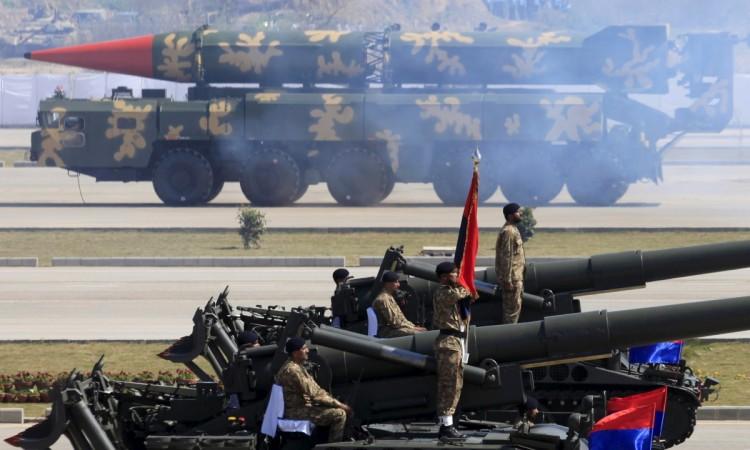
United States Secretary of State John Kerry asked Pakistan to limit its nuclear arsenal and urged the Nawaz Sharif government to prioritise the issue in its policy. Kerry's statements came during the U.S.-Pakistan Strategic Dialogue in Washington Monday.
Last year, a report by the Bulletin of the Atomic Scientists stated that Pakistan was set to become the fifth largest nuclear power in the world in the next ten years, and that it already has a stockpile of 110-130 nuclear warheads.
"On nonproliferation, nuclear safety is of obvious concern to both our countries, and I expect that we will continue to discuss the obligations of being a responsible state with nuclear weapons in the coming year," Kerry said following his meeting with Sartaj Aziz, Pakistani adviser on foreign affairs.
"I think it's important for Pakistan to really process that reality and put that front and centre in its policy," Kerry said, according to a press release by the U.S. Department of State.
However, Aziz called for "greater U.S. understanding of Pakistan's security concern" on the issue of nuclear non-proliferation. "Our engagement on nonproliferation and strategic stability will continue, and Pakistan hopes to see greater U.S. understanding of Pakistan's security concern and its desire to contribute actively," he said.
Kerry had cited the dangers of a nuclear race while referring to the Cold War era between the U.S. and the erstwhile Soviet Union.
"The United States of America once had 50,000 warheads pointing at another country or entity, the Soviet Union. And the Soviet Union had 50,000 pointing at us. And it took two presidents – President Gorbachev and President Reagan – in a meeting to decide that that didn't make sense. And we have moved in the completely opposite direction," Kerry said.
"Today, Russia and the United States are operating under a treaty that has about 1,500 or so nuclear warheads, and we are seeking to reduce that. So we're moving in the other direction. And I think it's important for Pakistan to really process that reality and put that front and centre in its policy," the U.S. secretary of state said.
The nuclear stockpile report released last year had warned that Pakistan was developing short-range nuclear capable missiles with a range of only 60 kilometres that could be used against India even in a 'low-intensity' conflict.
The U.S pressure on Pakistan to curb its nuclear programme comes amid concerns raised by India over the U.S. deal to sell F-16 fighter jets to Pakistan.















